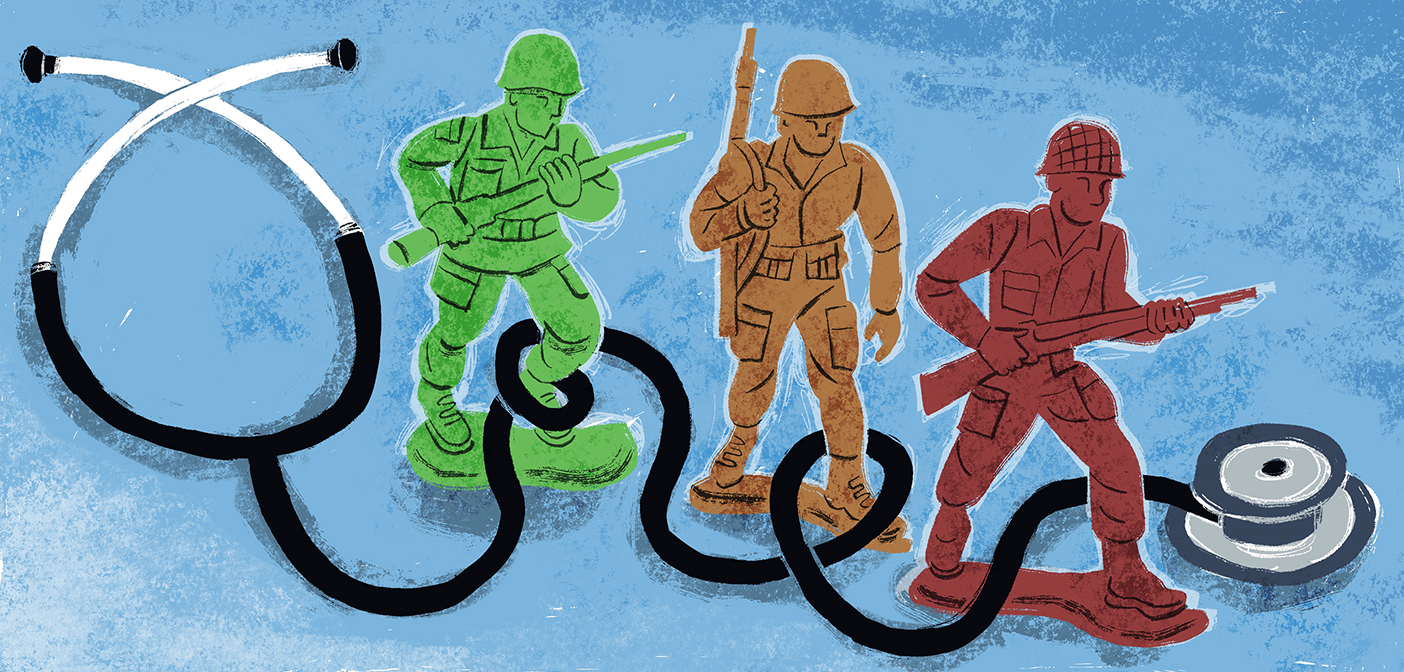ILLUSTRATIONS BY ANDY SNAIR
Soldiers from racial and ethnic minorities have long fought and died for America, a nation that has often refused to recognize them as equal under law—or in health care. In a guest editorial for Research in Nursing & Health, doctoral student Tiffany Riser and Dean Sarah Szanton of the Johns Hopkins School of Nursing join colleagues in looking at such disparities and the historical damage they have wrought (“Freedom Is Not Free: Examining Health Equity for Racial And Ethnic Minoritized Veterans”).
“The significant sacrifice of racial and ethnic minoritized groups in the United States military should not be understated and prioritizing their needs is of upmost importance,” they argue.
“Veterans’ care in the United States is a lesson in how structural policies can be used to impede or foster health equity on a population level. The improper implementation of programs and policies can further exacerbate health disparities in disadvantaged populations by not considering the contextual factors that influence outcomes.”
It is our patriotic duty, they argue, to fix that.
